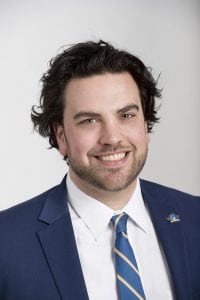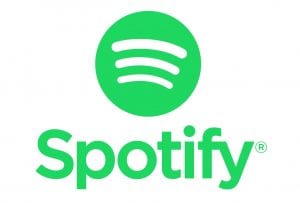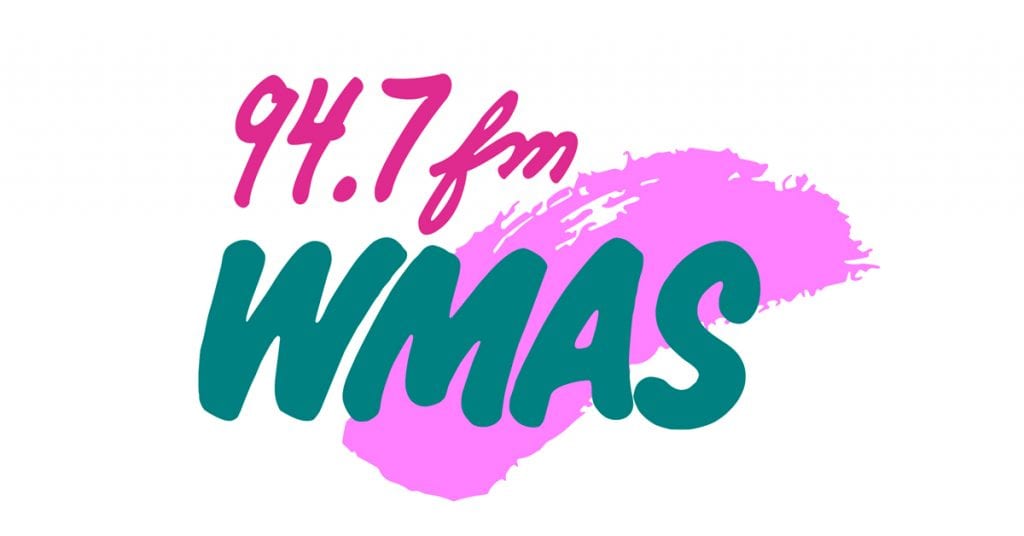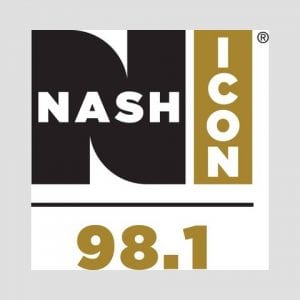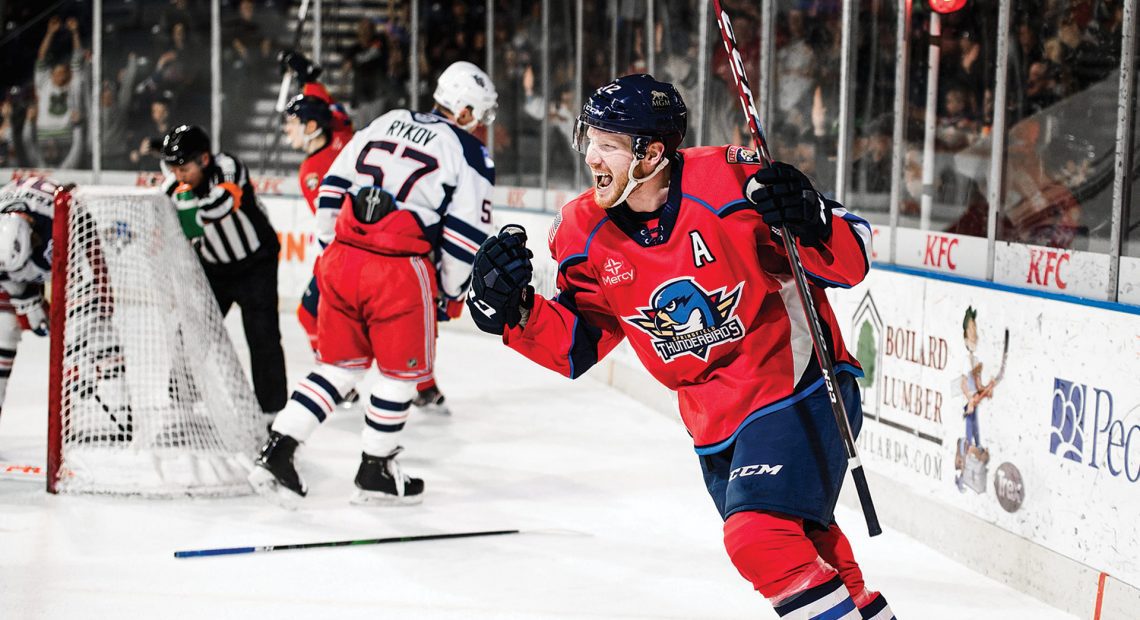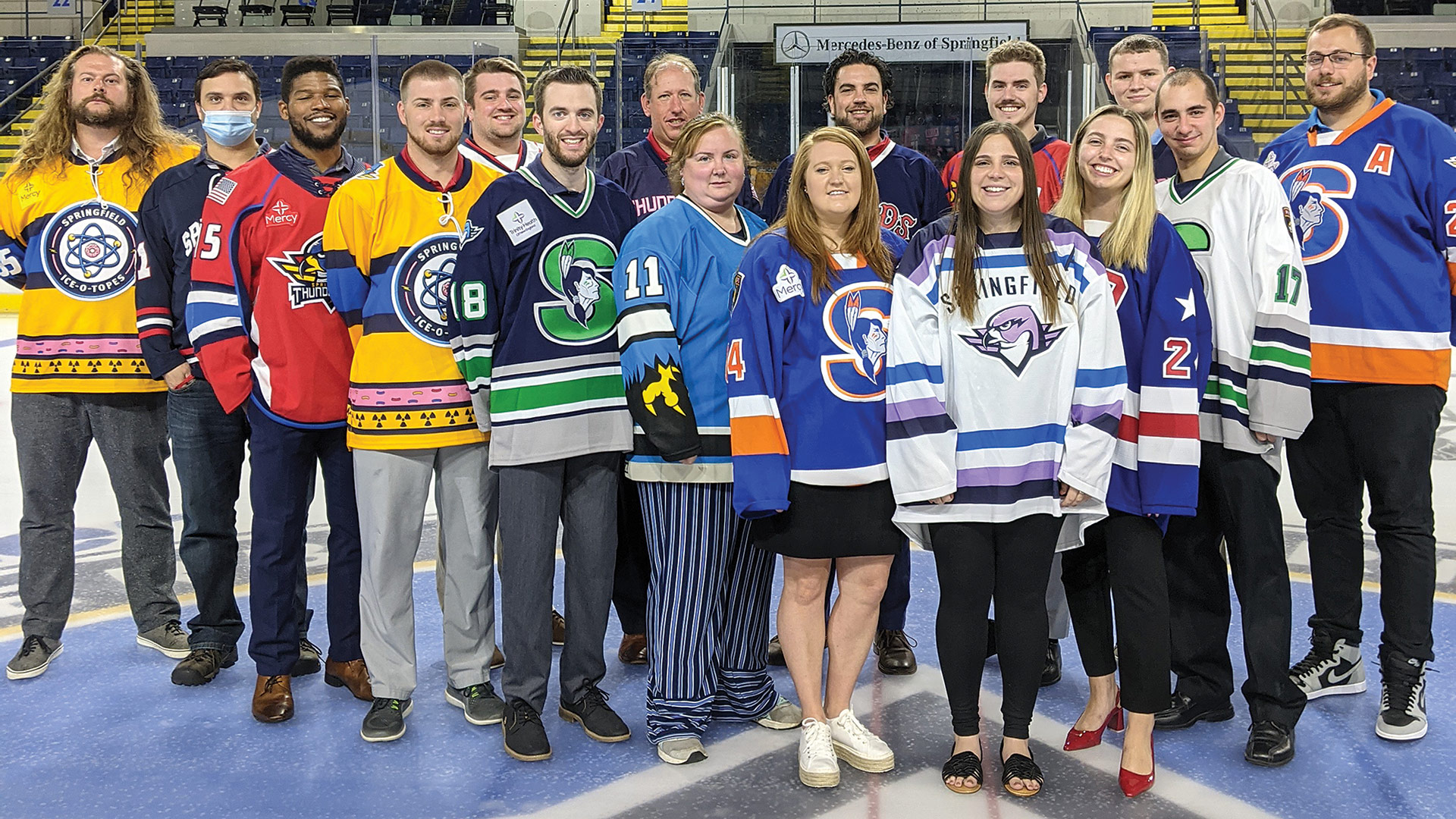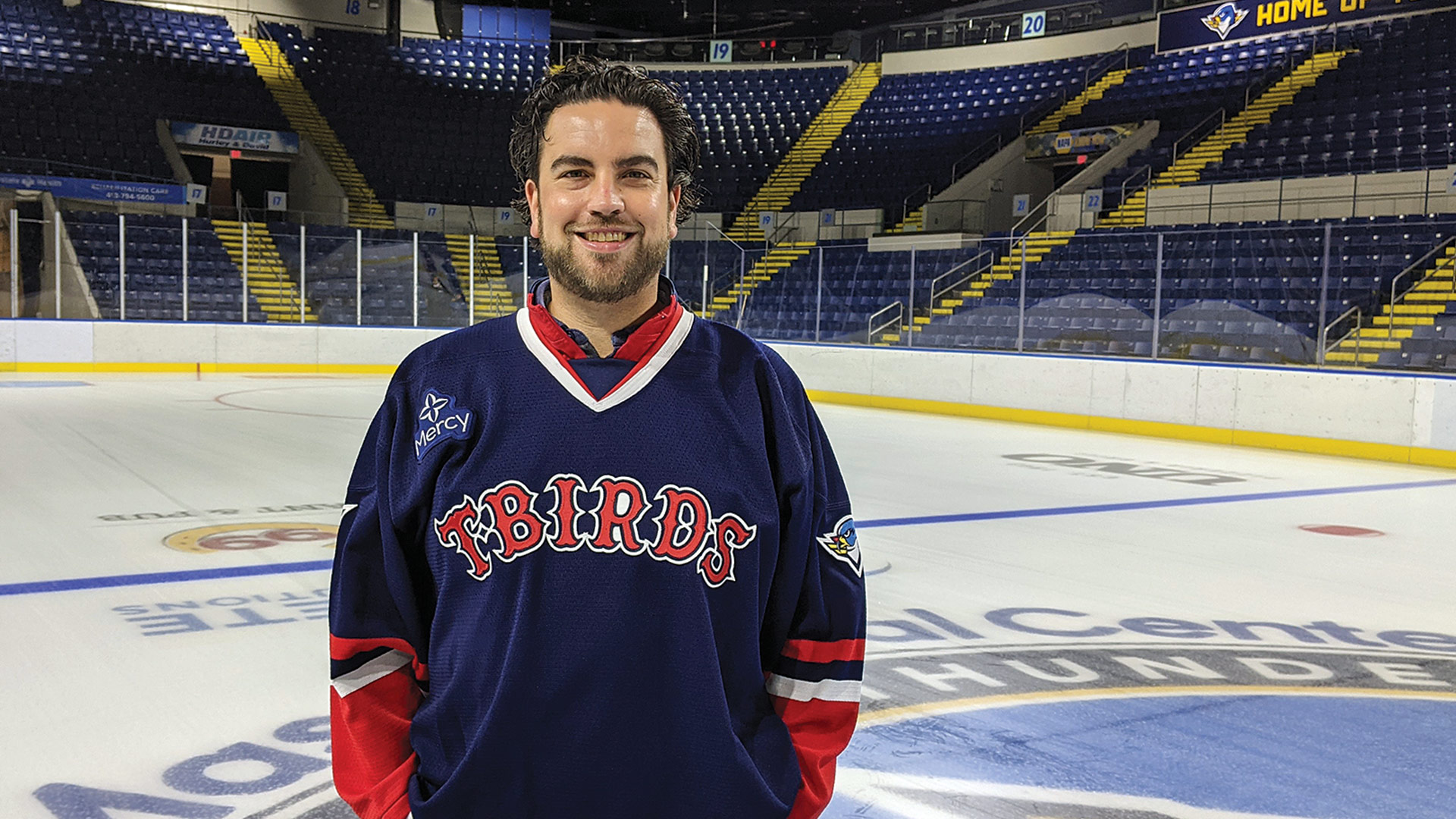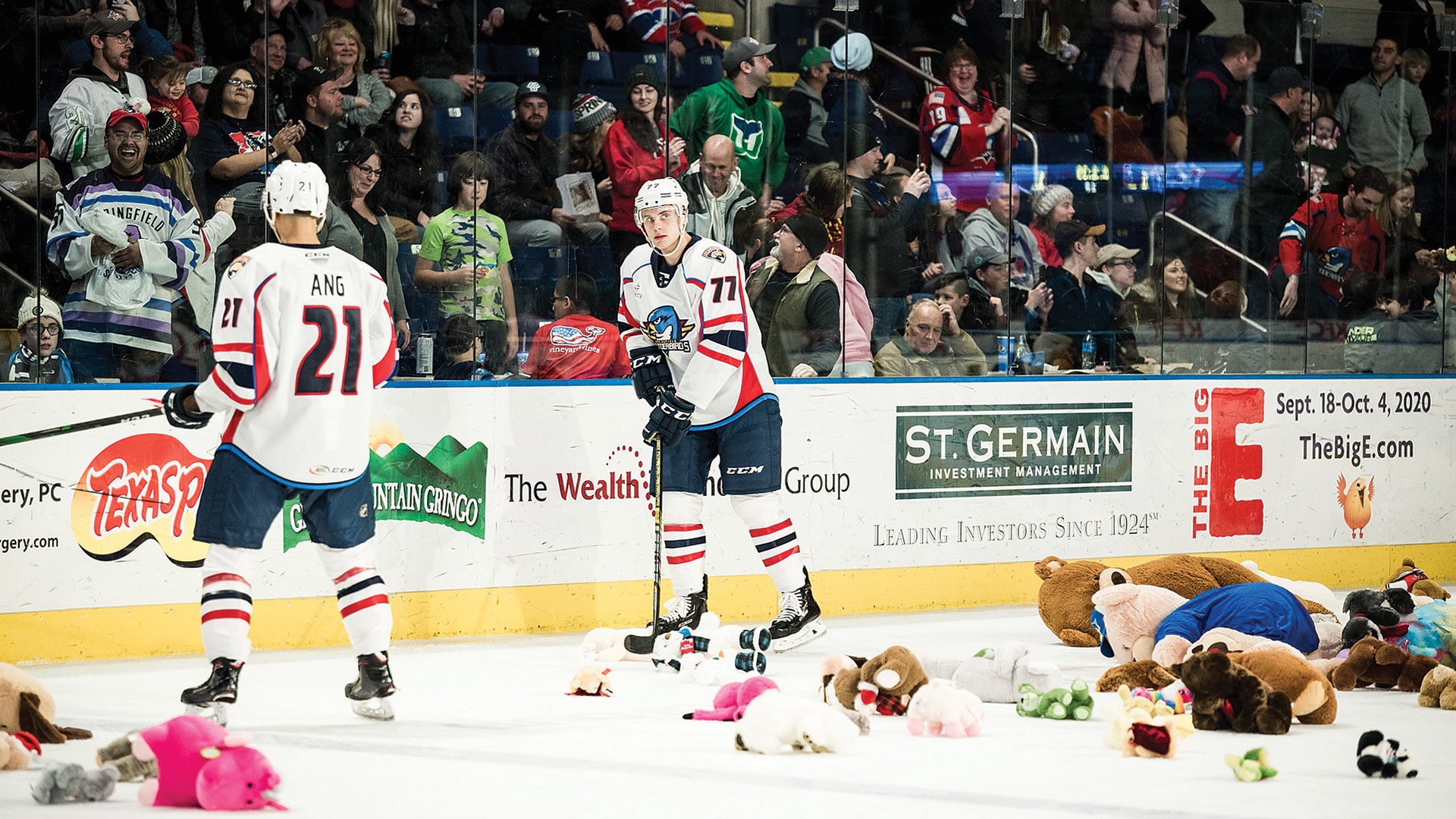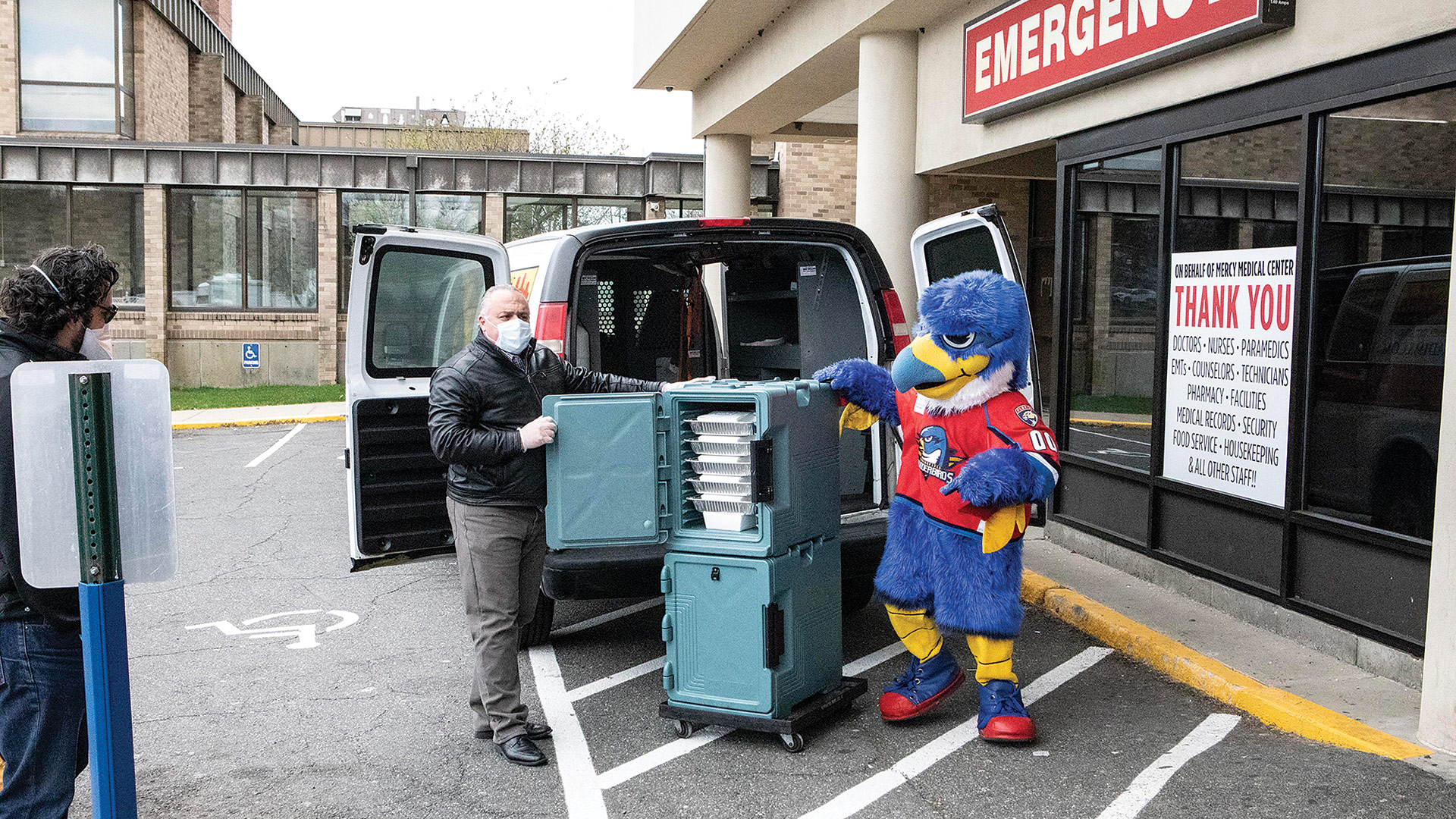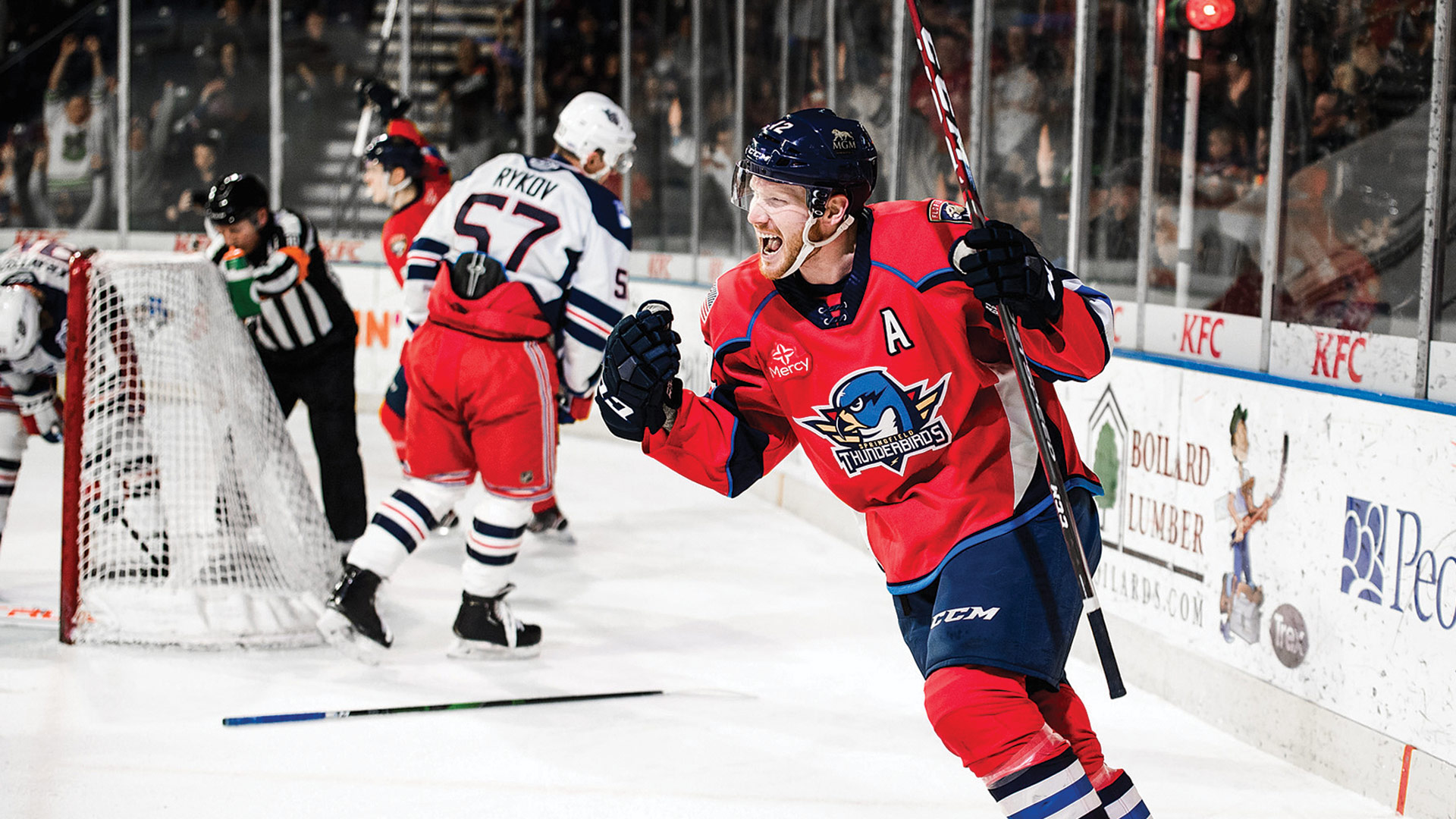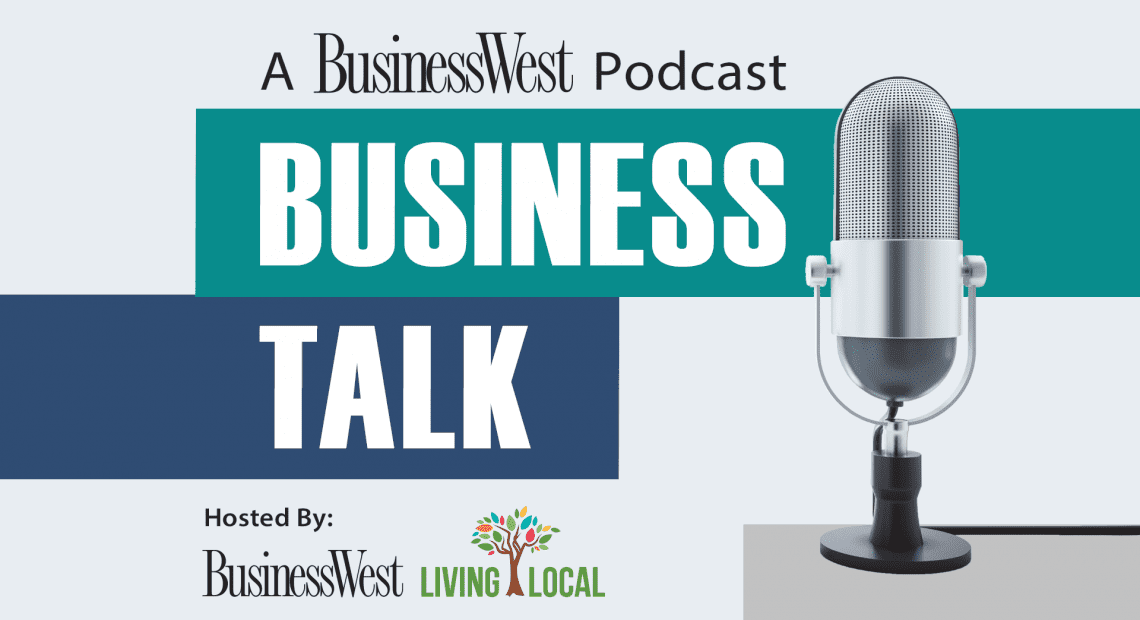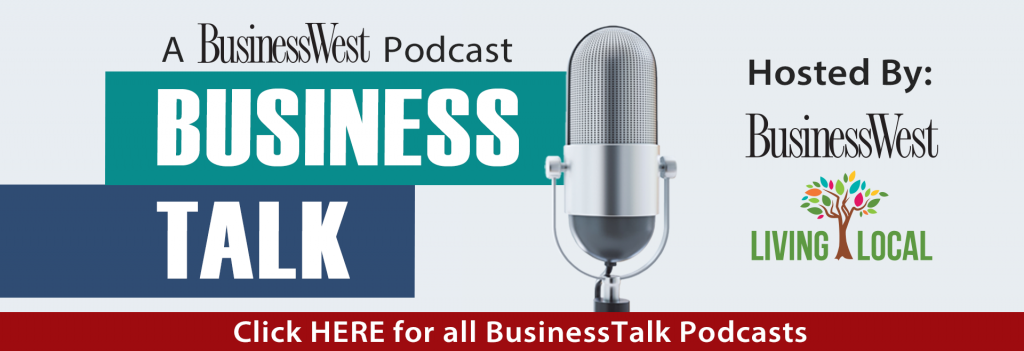Net Positives
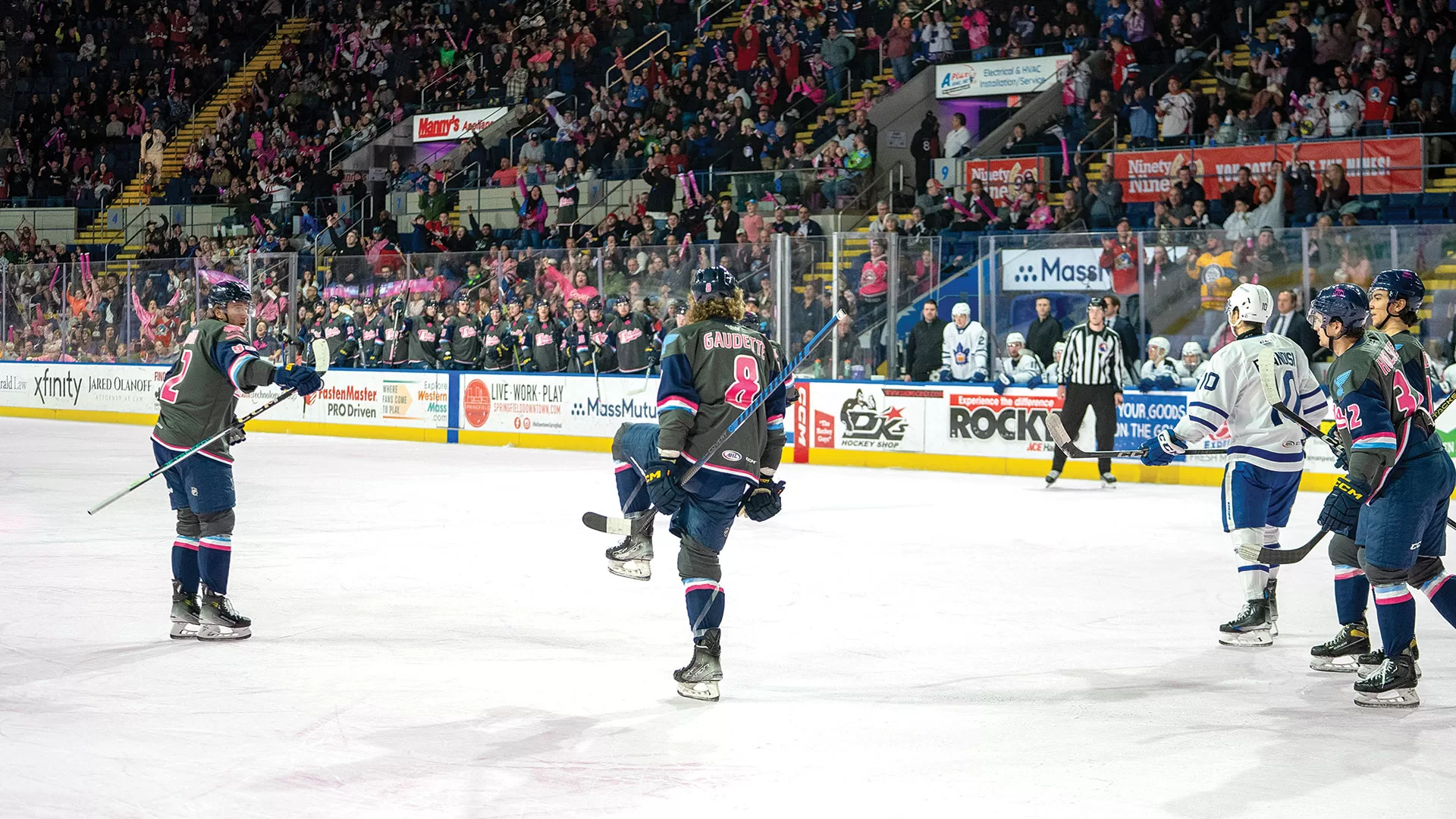
Adam Gaudette, the AHL’s leading goal scorer, has entertained a record number of sellout crowds at Thunderbirds home games this season.
Photo by Lucas Armstrong
When Nate Costa spoke with BusinessWest recently about the Springfield Thunderbirds’ 2023-24 season, the team was in a pitched battle for the final playoff spot in the American Hockey League’s Atlantic Division, a fight that could go either way as the campaign winds down this month.
But in many ways, this season has already gone the right way. Very right.
Start with attendance, which, at press time, had produced a franchise record-tying 15 sellouts, including nine in a row.
“The year has been really successful, especially on the business side,” said Costa, the team’s president since its inception in 2017. “We’re right in the thick of the playoff hunt, and we’re trying to stay in contention for the playoffs. But beyond that, the business side has been tremendous. Our staff has done a really fantastic job.”
Start with group sales, which topped $1 million this year, and more than 1,500 season ticket holders; the previous hockey franchise in Springfield, the Falcons, would typically put up around $400,000 in group sales and 400 season tickets. Both elements are critical, Costa said, in selling out the MassMutual Center each night. “When you’re trying to sell 7,000 tickets, you can’t just sell them on a game-by-game basis.”
On some sellout nights, he said, group sales — which typically involve organizations providing an experience for clients, employees, or area young people — account for more than 50% of the tickets.
“We’ve seen the growth and impact. We know what we’re doing internally, but we wanted to be able to quantify it.”
“So we’re getting a ton of kids here who maybe aren’t into hockey, and they’re checking out what we’re doing. And at the end of the day, they have a great time coming out to the games, feeding off the experience in the building. We’ve played really well at home this year and had some really exciting games.”
Part of that experience, he was quick to add, has been a slate of promotions mixing new offerings with growing traditions like Pink in the Rink (a fundraiser for Rays of Hope), Pucks N’ Paws, Mayflower Marathon Night, Springfield Ice-O-Topes Night, Throwback Night, Hometown Heroes Night, and Military Appreciation Night.
“These are staple nights now that we’re going to continue to build on year after year, with new giveaways,” Costa said. “Fans gets a custom experience — and then, oh, by the way, it’s the second-best hockey in the world happening on the ice.”
Having worked in the AHL for a long time, Costa believed from the time he took the reins in Springfield that a first-class experience at the games, coupled with the hard work of his sales and marketing staff and an ambitious slate of community outreach (more on that later), the franchise could see the success it’s experiencing now.
“I remember saying we can be a standard bearer for the American Hockey League, that we can get to 6,000 a game. And the general feeling when I took over was that it would be challenging to reach that number. But I knew we could get there.”
And now, well beyond.
Meeting Their Goals
The team’s impact has been felt far beyond the ice. Last fall, the Thunderbirds released the results of a comprehensive economic-impact study conducted by the UMass Donahue Institute that shows the team’s operations had generated $126 million for the local economy since 2017.
The study included an analysis of team operations data, MassMutual Center concessions figures, a survey of more than 2,000 T-Birds patrons, and interviews with local business owners and other local stakeholders. Among its most critical findings, the study shows that the T-Birds created $76 million in cumulative personal income throughout the region and contributed $10 million to state and local taxes.
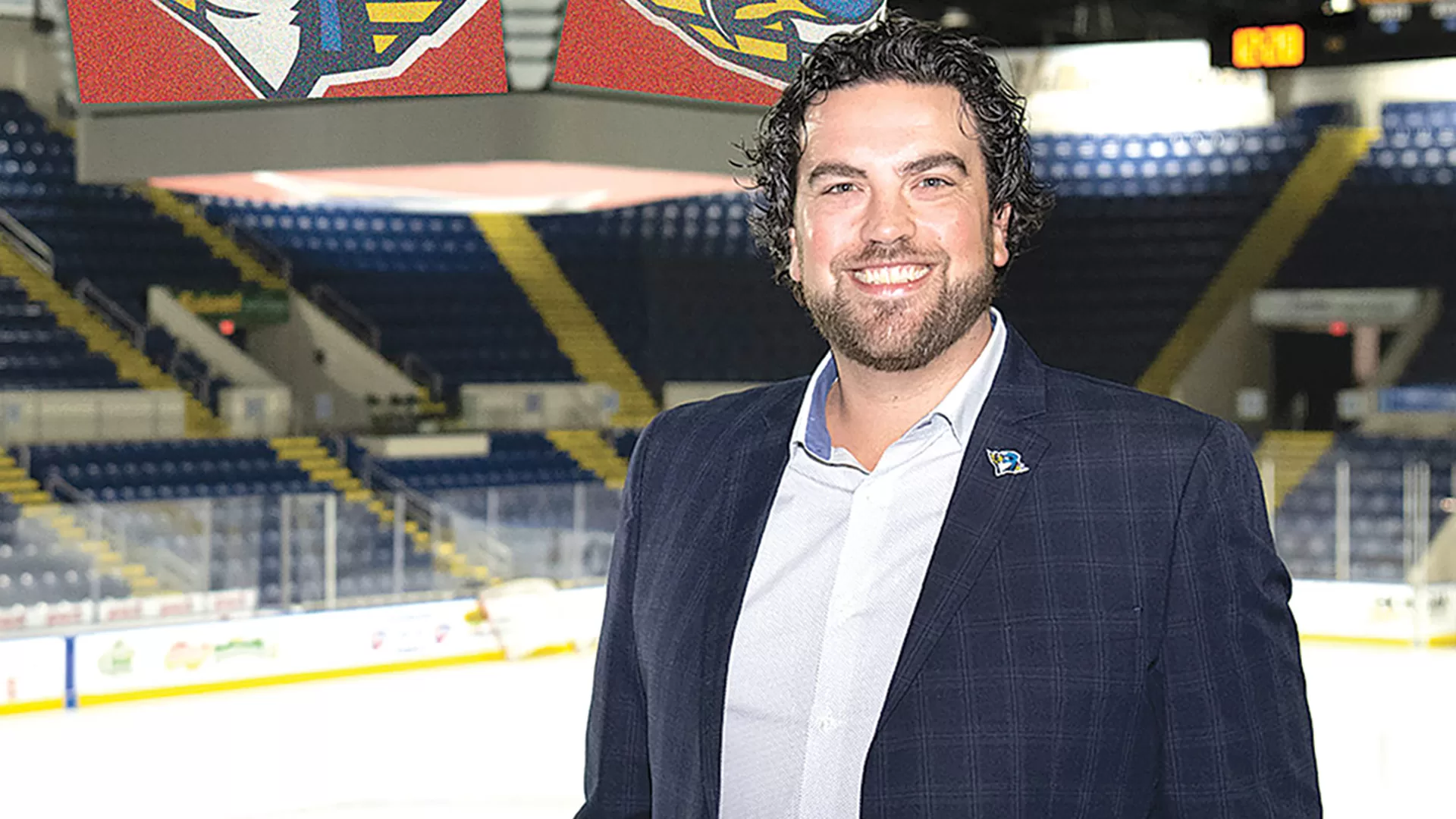
Nate Costa says many were skeptical of his initial goal of drawing 6,000 fans to the MassMutual Center each night, but most home games now attract around 7,000.
The impact on downtown Springfield businesses is especially profound. Seventy-eight percent of T-Birds fans spend money on something other than hockey when they go to a game, including 68% who are patronizing a bar, restaurant, or MGM Springfield. The study also found that median spending by fans outside the arena is $40 per person on game nights and that every dollar of T-Birds’ revenue is estimated to yield $4.09 of additional economic activity in the Pioneer Valley.
“I can’t say enough about the Thunderbirds,” said Mary Kay Wydra, president of the Greater Springfield Convention & Visitors Bureau. “They keep downtown hopping in the dead of winter. I happen to live downtown, and I know when it’s gameday downtown because the streets are busy.
“I think they’ve really made Springfield a hockey town,” she added, before noting some of the direct economic impact. “They drive hotel room nights. You have people coming in from Wilbraham, Longmeadow, Northampton, whatever, they’re probably going to grab a bite to eat downtown or maybe grab a drink after the game. So there’s a huge impact on our economy when the Thunderbirds play.”
Costa agreed. “We had a feeling we were making a significant impact when you come downtown on one of the game nights and seen the city traffic back up on Columbus, people walking around downtown, all the activity and life downtown. They’re coming to the game, but going out to dinner first, then having a drink afterward.”
Part of the reason the team wanted to quantify the impact with the Donahue Institute study was to show the city and state that the team — and its home, the MassMutual Center — are worth further investment.
“It’s a little challenging that we don’t control the product, but at the end of the day, we’re controlling the experience.”
“We’ve seen the growth and impact. We know what we’re doing internally, but we wanted to be able to quantify it,” Costa said, adding that the team is a main reason why the dilapidated parking garage next to the arena was torn down and is being rebuilt.
“Without the bodies at the games and this much activity, it was more of a risk, but there was a lot of confidence on the city and state side that what we were doing as the main tenant in this building was tremendous.”
The T-Birds’ economic impact also translates into jobs throughout the region. Since the team’s inaugural season, it has doubled the number of jobs created from 112 in 2017 to 236 in 2023. The study estimates that income per job created by the T-Birds is approximately $76,000 for the Pioneer Valley and that each job at the Thunderbirds creates or supports 3.28 other jobs elsewhere in the Pioneer Valley.
Costa said he, Managing Partner Paul Picknelly, and the rest of the ownership group always believed this success was possible.
“We knew what we were taking on. We knew we’d have to set up the business the right way and invest the right way, and I have to give credit to the ownership who allowed me to invest the right way, staff up, do the game promotions and theme nights.”
Community Assist
In addition to supporting local businesses, the Thunderbirds have been dedicated to making a difference in the community. In 2018, the team established the nonprofit T-Birds Foundation to support local initiatives in the areas of health and wellness, youth enrichment, and civil service.
To date, the foundation has made more than $300,000 in contributions to organizations and charitable events throughout the Pioneer Valley. Meanwhile, team players, personnel, and mascot Boomer have combined for more than 1,700 appearances since 2016.
“This year, we’ve done over 200 appearances by Boomer. And the players are out every day,” Costa said, through efforts like a reading program and youth hockey initiatives. A couple weeks ago, the team even made its first appearance in the Holyoke St. Patrick’s Day Parade. “So there are still things we’re unveiling that we haven’t been doing, really good stuff to continue to build on our visibility.”
Wydra praised those efforts to engage the community, both on and off the ice.
“I think Nate and his team have done a great job of making that team all about family entertainment, and it’s more than just the product they put on the ice. I mean, when they’re winning, it’s a great thing; everybody loves to support a winning team. But they’ve been so creative, the way they interact with the community and the different types of game events they do, the promotions.”
The 2023-24 season has been an up-and-down affair, marked by injuries and, of course, a number of call-ups to the NHL St. Louis Blues, including the head coach, Drew Bannister.
“Almost half the [opening-day] roster is now playing meaningful minutes in St. Louis,” Costa said. “That part of the connection is really positive. It’s a little challenging that we don’t control the product, but at the end of the day, we’re controlling the experience. And the Blues have done a good job sending us a team that’s exciting.”
Indeed, center Adam Gaudette leads the entire AHL in goals scored, and the team, in general, has been high-scoring and fun to watch, Costa added. The team also ranks third in the league in percentage to capacity, meaning the percentage of total seats in the arena that are sold each night.
“That’s a real barometer for our success, and it’s probably creating some urgency and demand in the marketplace,” he said. “Our building size is perfect for the American Hockey League market. We see the dichotomy in Hartford. They’ve got a big building, and they’ve done a nice job this year; they’ve taken a look at what we’re doing in Springfield and adopted some best practices that we do here. And that’s helped their attendance. But they’ve got a 15,000-seat building, and it’s not as easy to create the atmosphere.”
An energetic fan experience, robust community support, quantifiable economic impact, and soaring ticket sales — that’s a recipe for success for any hockey team, whether it makes the playoffs or not.



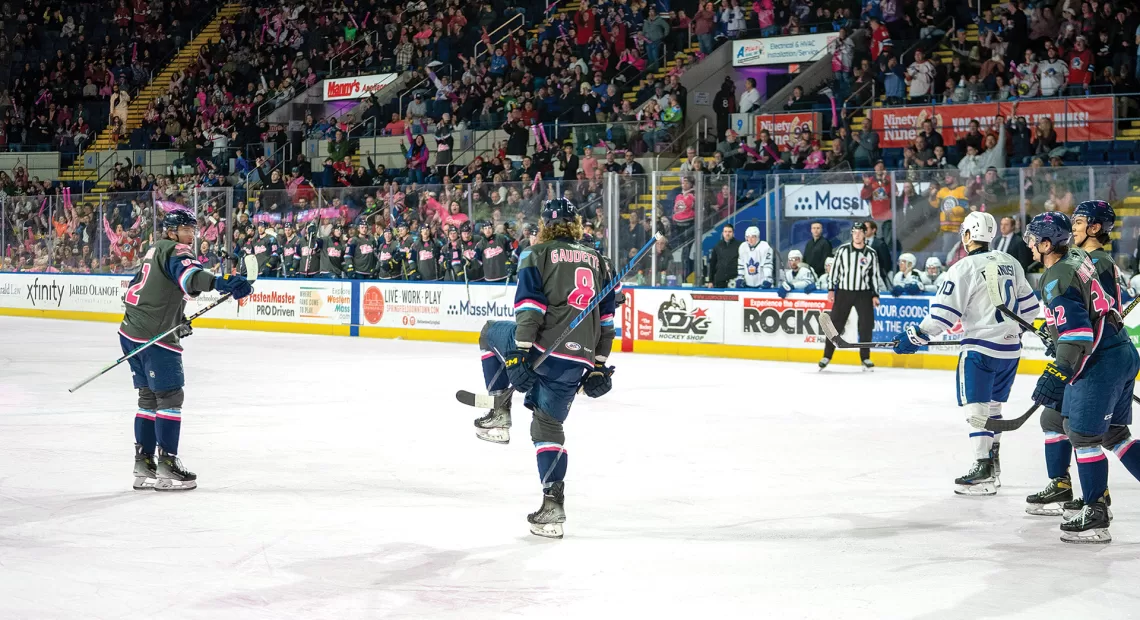
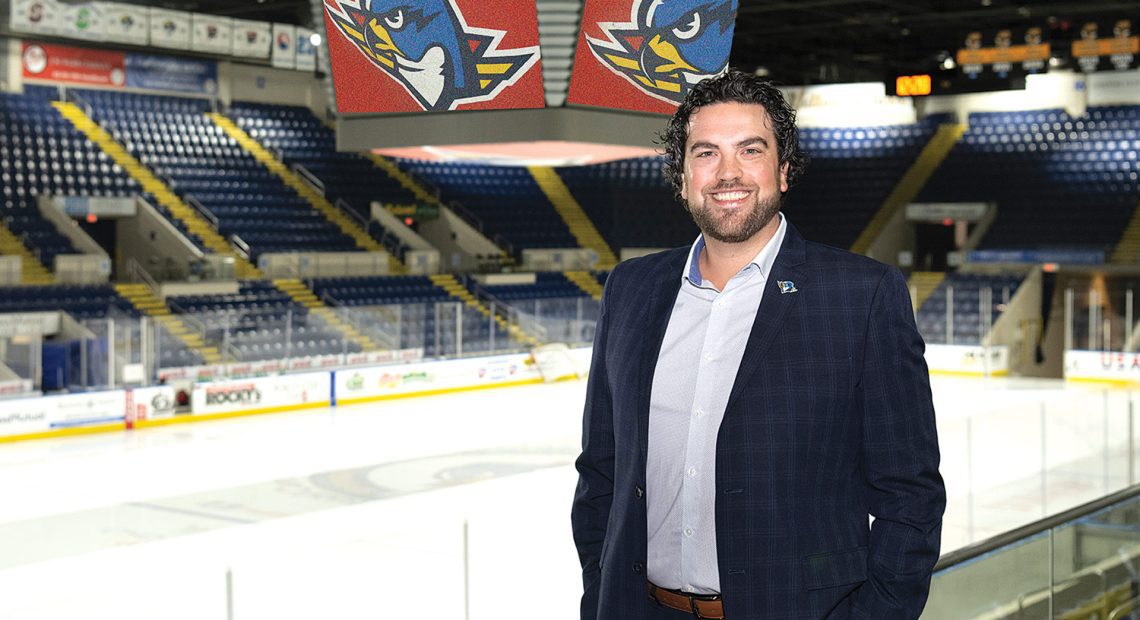
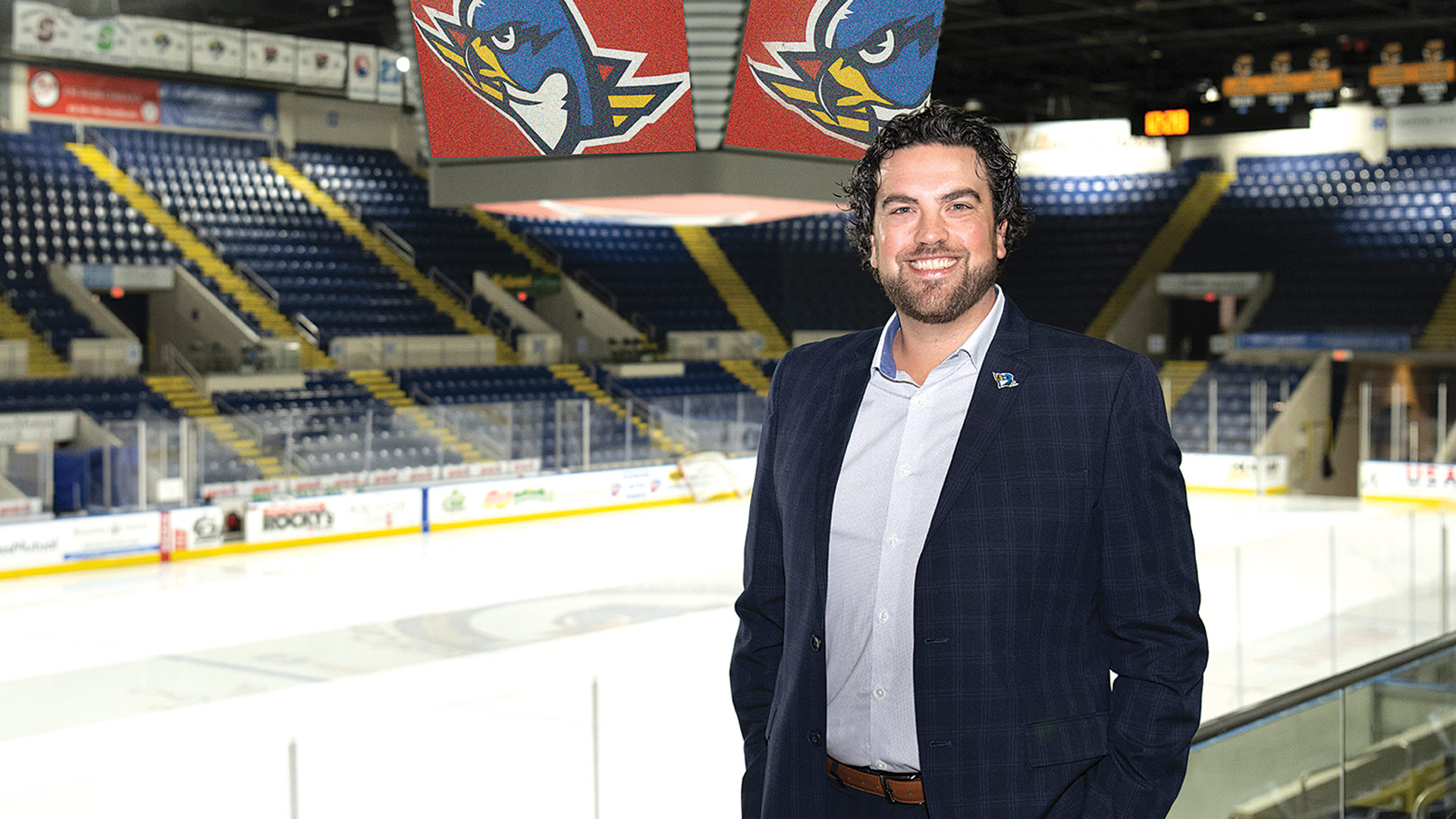
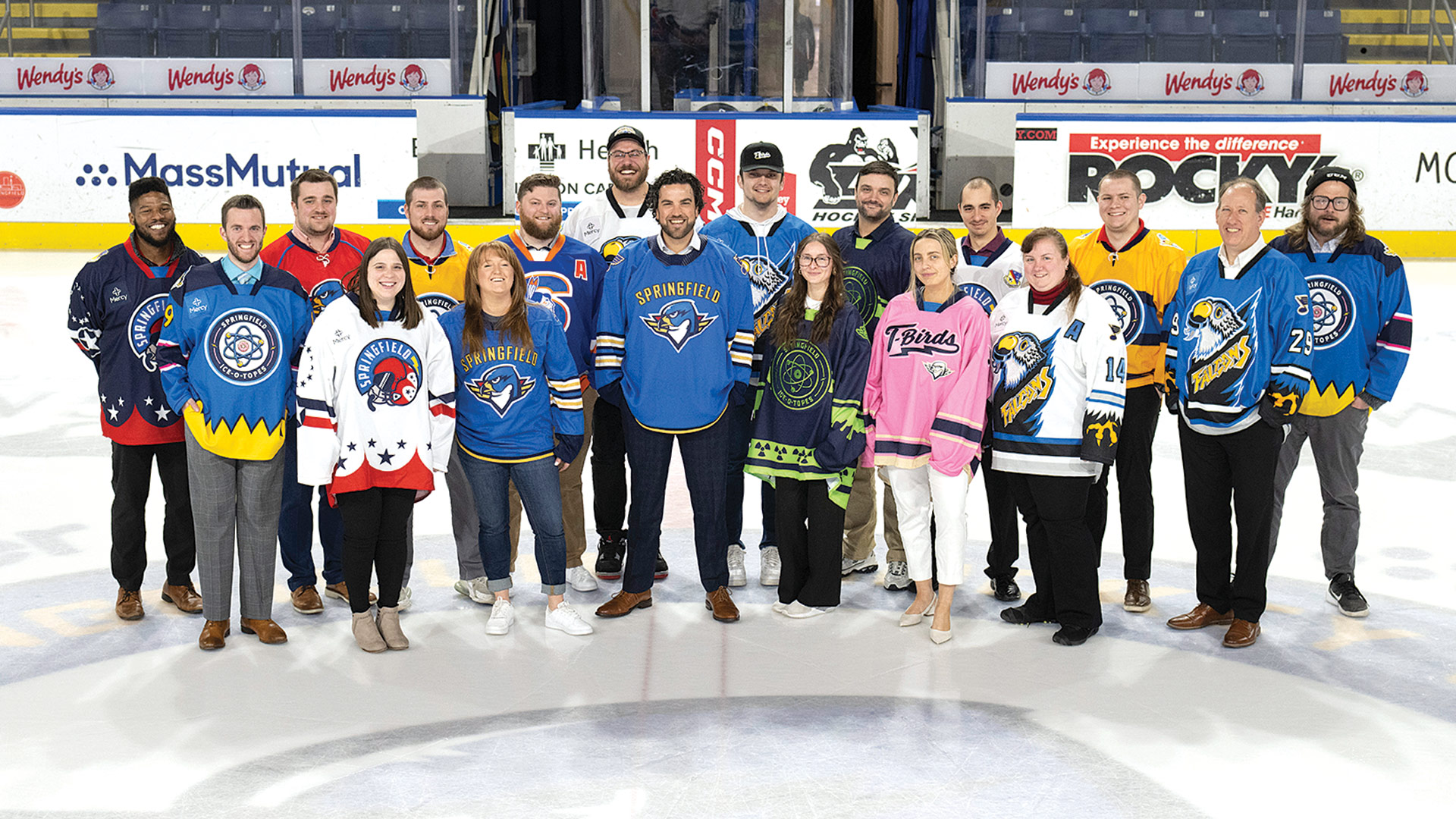
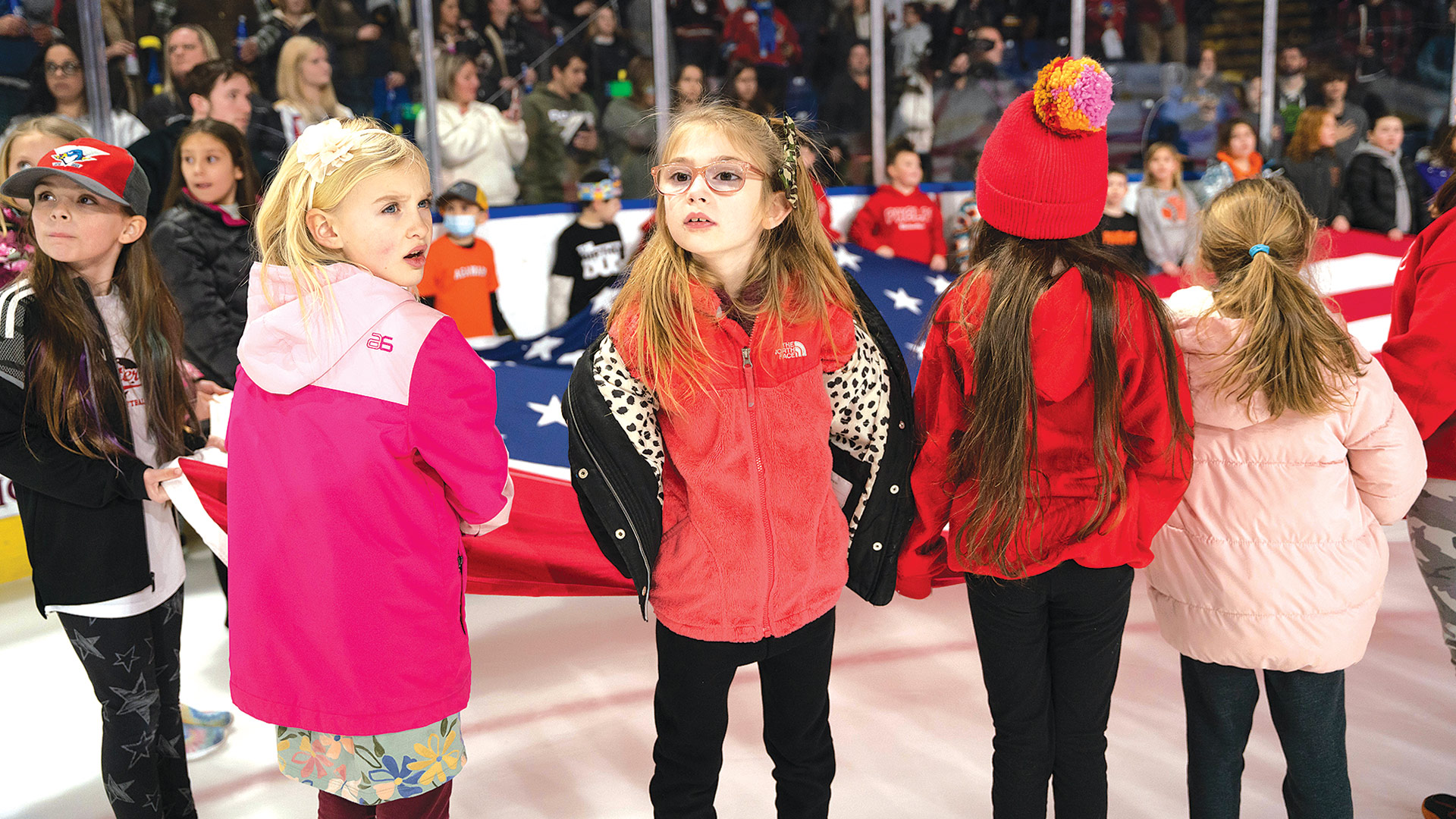
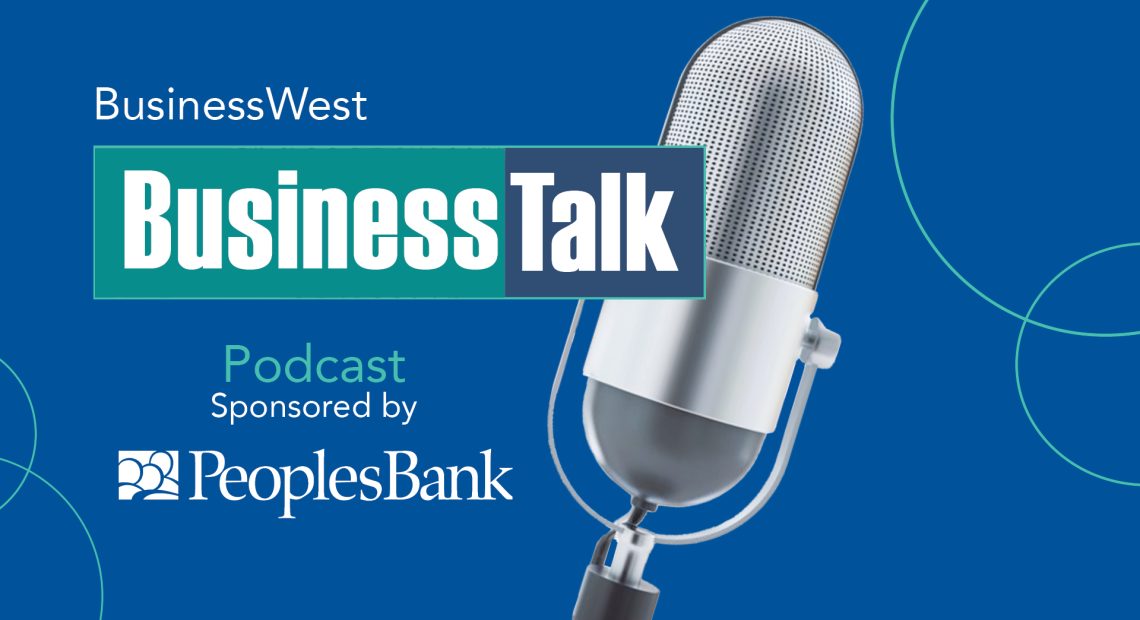
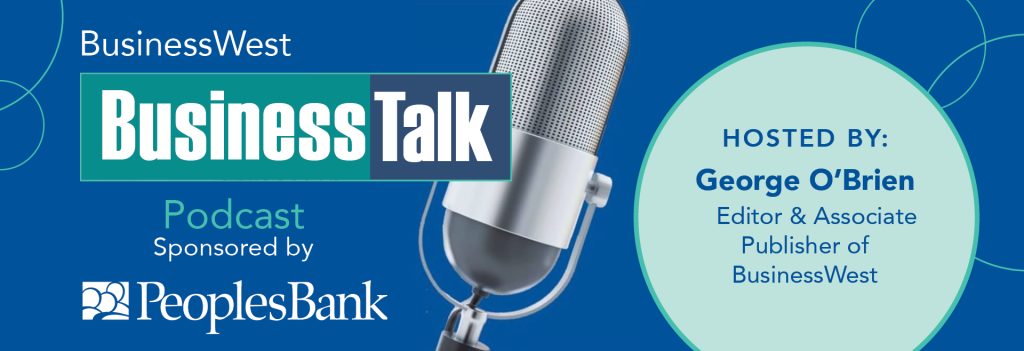 We are excited to announce that BusinessWest, in partnership with Living Local, has launched a new podcast series, BusinessTalk. Each episode will feature in-depth interviews and discussions with local industry leaders, providing thoughtful perspectives on the Western Massachuetts economy and the many business ventures that keep it running during these challenging times.
We are excited to announce that BusinessWest, in partnership with Living Local, has launched a new podcast series, BusinessTalk. Each episode will feature in-depth interviews and discussions with local industry leaders, providing thoughtful perspectives on the Western Massachuetts economy and the many business ventures that keep it running during these challenging times.